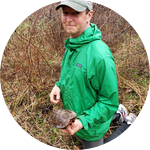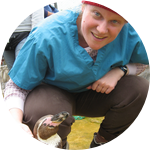About This Project
Sea Turtles of the Gulf Coast have received minimal study regarding their health via metal and mineral blood values. The historic cold stunning events of 2021 in Texas and along the Atlantic coast caused the cold stunning of thousands of Green and Kemp's Ridley Sea turtles which underwent rehabilitation and release into the Gulf of Mexico from Texas. With permission of the US Fish & Wildlife Service, we sampled healthy sea turtles prior to release.
Ask the Scientists
Join The DiscussionWhat is the context of this research?
We know very little about the blood minerals and metals of Kemp's ridley sea turtle, Lepidochelys kempii, the rarest and most endangered species of sea turtle. More assessment has occurred for the green sea turtle Chelonia mydas, another endangered sea turtle found throughout the world [Barraza 2019, Aguirre 1994, Frossard 2020, Shaw 2021, Sakai 2000]. A literature base exists for sea turtle species to allow comparison of blood and other tissue values for these elements [Guirlet 2008, Villa 2019, Ikonomopoulo 2011, Ehanspour 2014, Caurant 1999. Understanding the blood minerals and metals of these turtles will help to assess their health and understand and combat causes for their continuing species decline.
What is the significance of this project?
Recent cold stun events in Texas provide an unprecedented opportunity to evaluate sea turtle baseline health via the blood minerals and metals: manganese, cobalt, copper, iron, molybdenum, selenium, zinc, arsenic, cadmium, lead, & thallium. Knowledge gained will provide meaningful baseline data for health assessment of sea turtle species during cold stun events, rehabilitation and beyond. Plastic ingestion's association with trace elements in other pelagic species supports the need for assessment of sea turtles for these values, which degrade health in many other free-living species [Bradeny/Ali/Borchert/Cartro-Sabate 2019, Puskik/Webster/ Larison 2020].
What are the goals of the project?
Measurement of metals and minerals by inductively-coupled plasma/mass spectrometry will be conducted by the toxicologist at TVMDL. With over 100 samples collected, we will intend to create baseline ranges for these values to allow ill or injured sea turtles to be readily investigated for toxicity and undergo treatment. Based on the lead and the contaminants of the Gulf of Mexico along the Texas coast, toxicosis (Particularly lead, but other heavy metals are of concern after the Macondo Incident) is likely, but is rarely investigated in rehabilitating sea turtles. We will statistically evaluate the data collected and compare these values to those reported in other sea turtles throughout the globe.
Budget
Sampling supplies are needed to draw blood, store and process the blood for storage prior to submitting to the Texas Veterinary Diagnostic Lab. Funding will support collection of 120 samples. Travel funds include economy hotel stays and mileage from College Station to Corpus Christi ( 3 trips). Metal and Mineral Panel fee as published by TVMDL.
Endorsed by
 Project Timeline
Project Timeline
Samples will be collected and process in the Spring of 2021
Data will be evaluated and processed in the Summer of 2021
Submission for publication in Winter of 2021
Mar 09, 2021
Sample Results
May 01, 2021
Sample Collected
May 05, 2021
Project Launched
May 31, 2021
Project Launched
Nov 01, 2021
Statistical Results
Meet the Team
Affiliates
J Jill Heatley
As a zoological and wildlife veterinarian I seek to protect, preserve and enrich the earth's wildlife resources. I am particularly interested in the physiology of rescue as occurs in wildlife rehabilitation, cold stunning, oil exposure and other natural and man-made disasters that affect wildlife. I study these effects via assessment of blood analytes which look not only at immediate and life-threatening problems but also long-term toxicities of the environment. My zoological veterinary medical training, over 20 years of veterinary experience and my zoo, avian and reptile board certifications make me uniquely qualified to handle and sample animals humanely and ethically and to assess analyte results to determine health and well-being of diverse wildlife, zoo and exotic animal species. I also provide specialist veterinary consultation to veterinarians and wildlife biologists regarding animal handling and sampling for diagnosis and research.
Tim Tristan
Dr. Tim Tristan is a Diplomate of the American Board of Veterinary Practitioners in Reptile and Amphibian Practice. Dr. Tristan is the Director and Veterinarian of Texas Sealife Center in Corpus Christi, Texas. Dr. Tristan also volunteers for The ARK, or Animal Rehabilitation Keep, part of the Marine Science Institute at The University of Texas in Port Aransas, Texas.
Lab Notes
Nothing posted yet.
Project Backers
- 14Backers
- 12%Funded
- $515Total Donations
- $18.93Average Donation


